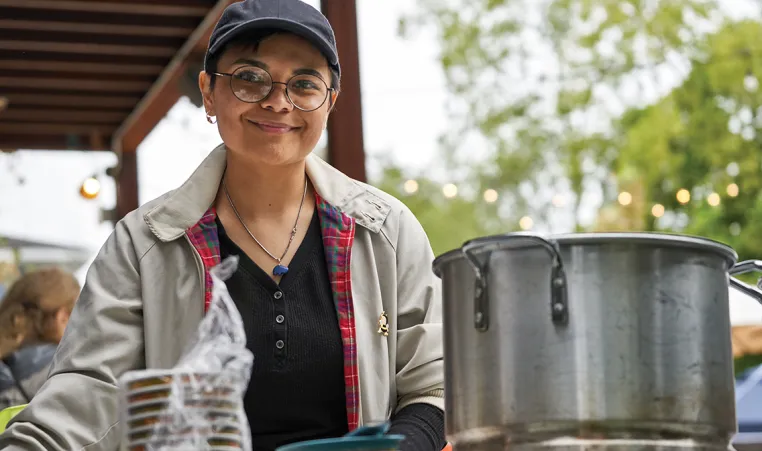
December 13, 2021
By Jessica L. Giffin, MPH, CHES, NBC-HWC, Director of Health Partnerships, YMCA of Metro Denver
Take a second and picture your neighborhood. Where is the closest grocery store? Is it easy to get there? Some communities have multiple grocery stores within walking distance, but many communities don’t have easy access to a full-service grocery store. They may have to travel far to find one or rely on convenience stores which are often more expensive and have fewer healthy options.
Communities that don’t have access to affordable and nutritious food are known as “food deserts.” You can often find food deserts in urban spaces, rural areas, and low-income neighborhoods. People with chronic illnesses or disabilities may also have less access to grocery stores. This lack of access can lead to food insecurity and impact overall health.
It’s difficult to eat healthy if someone doesn’t have access to fresh produce or if their neighborhood is full of fast food restaurants. Access to foods that aid healthy eating affects someone’s health throughout their life. Because healthy eating can lower your risk for certain chronic health conditions, people that can’t regularly get nutritious foods are more likely to develop obesity and diabetes.1
The YMCA of Metro Denver also runs a program for the community called, Beyond Hunger to give food to people in our community who need it. Our nutritionists work with Beyond Hunger to make sure people get items that will nourish them, help them feel good and are culturally relevant.
Health is more than what medicines you take or how often you see a health care provider. Your lifestyle, including what you eat, plays a big role in your health! That’s why it’s important that everyone has access to affordable and nutritious food.
We hope that we can learn more about how environment and lifestyle can impact health. That will take more research! If you want to help scientists find out more about health and how every community has different experiences, here’s how you can play a part.
The National Institutes of Health’s All of Us Research Program is bringing together at least a million volunteers to share information about their lifestyle, health needs, where they live, and more to get a better picture of everything that makes up health. That way health care providers, nutritionists, maybe even city planners, can make more personalized choices for every person and community.
There are a number of ways you can help advance health research with All of Us, including taking their newest survey about social determinants of health. These are your life experiences that impact your health - like how close your nearest grocery store is and what kind of food it sells!
If you’re interested in helping researchers learn more about how your lifestyle and community impact health, visit JoinAllofUs.org/togetherDENVER.
1 HealthyPeople.gov, “Access to Foods that Support Healthy Eating Patterns”